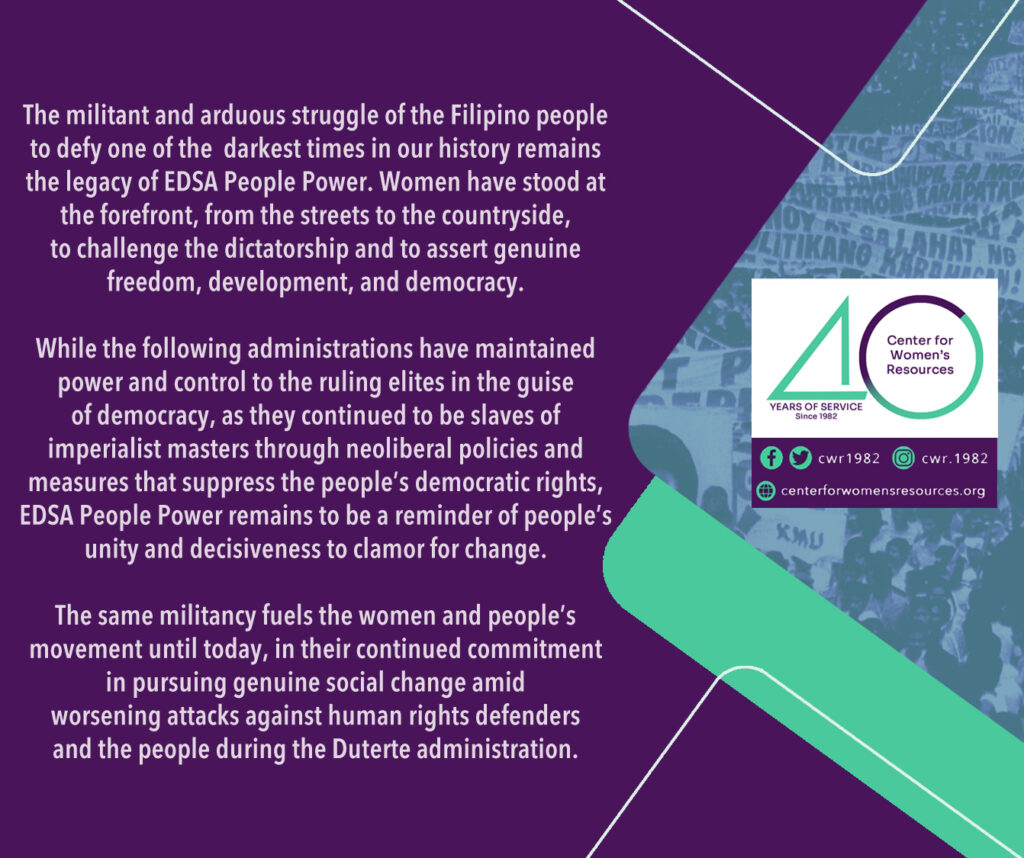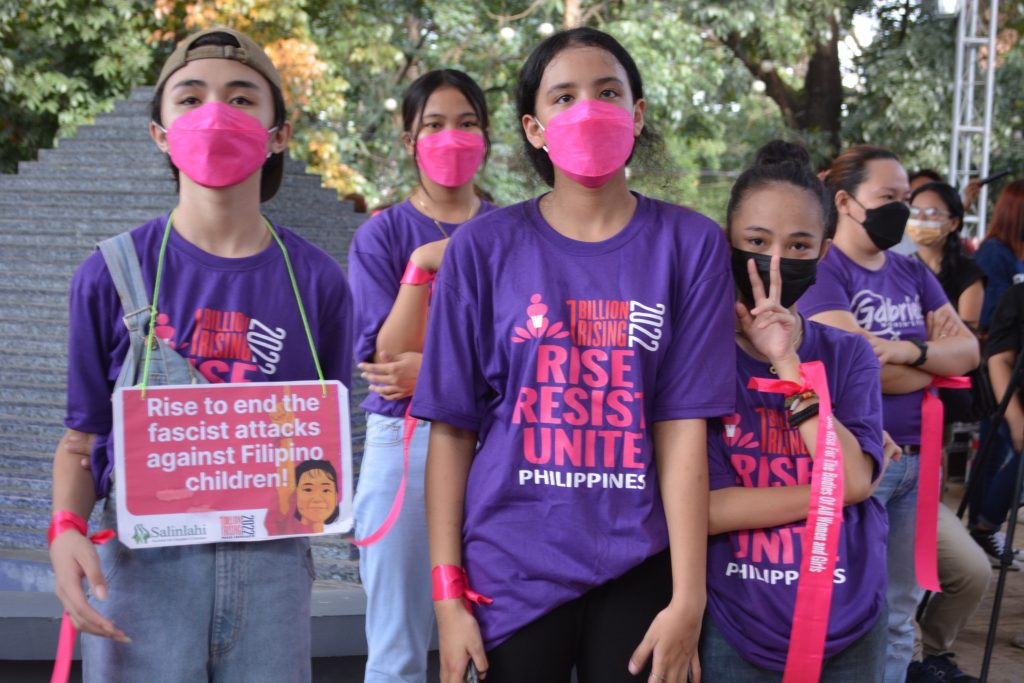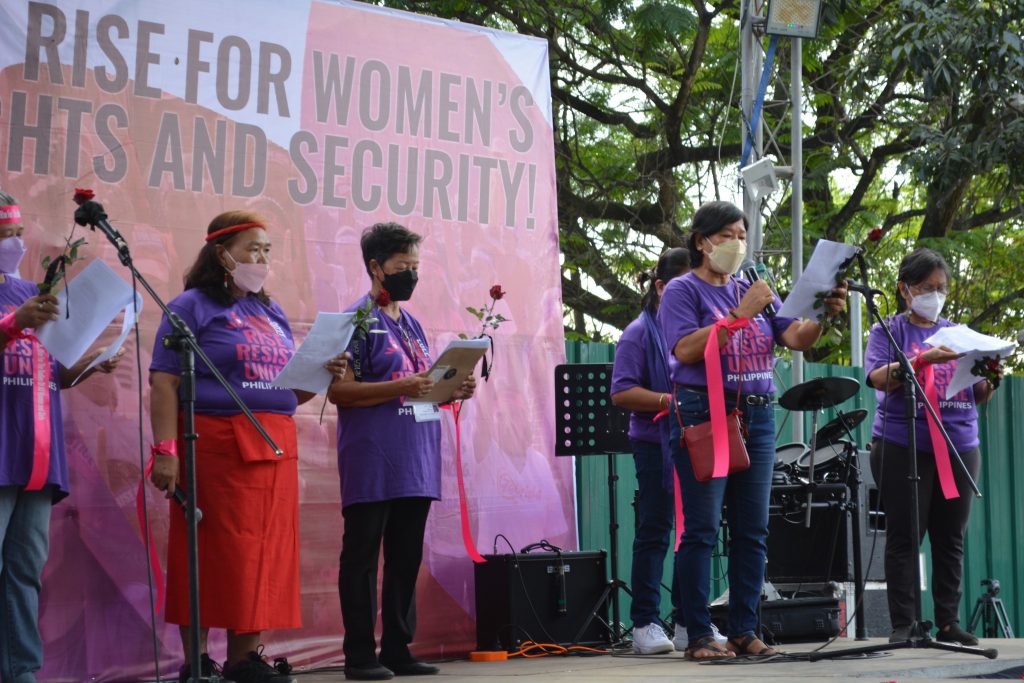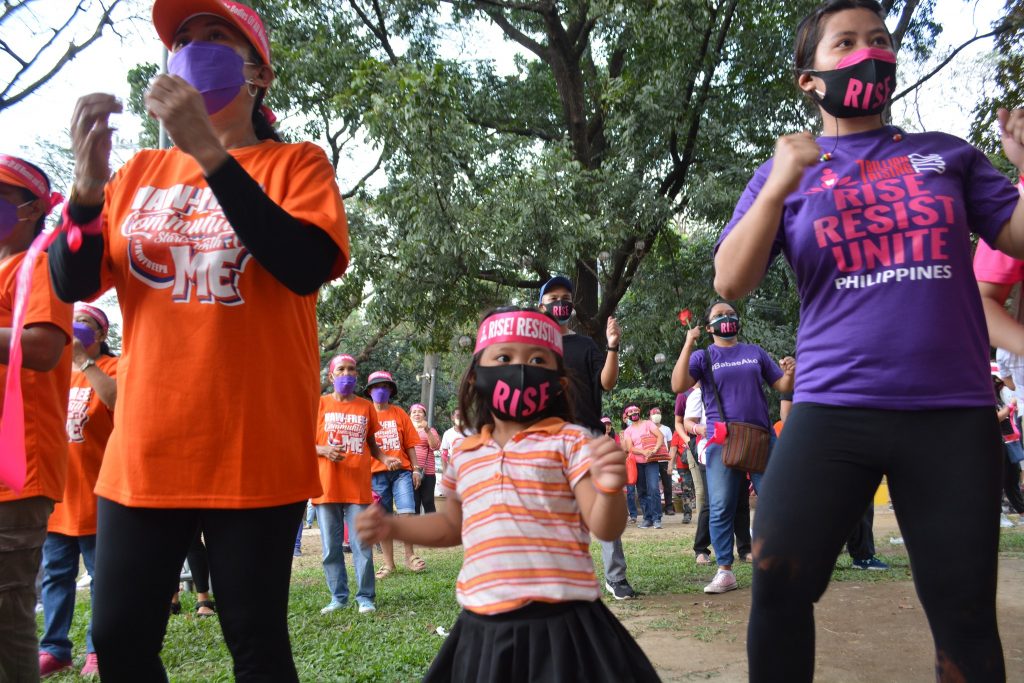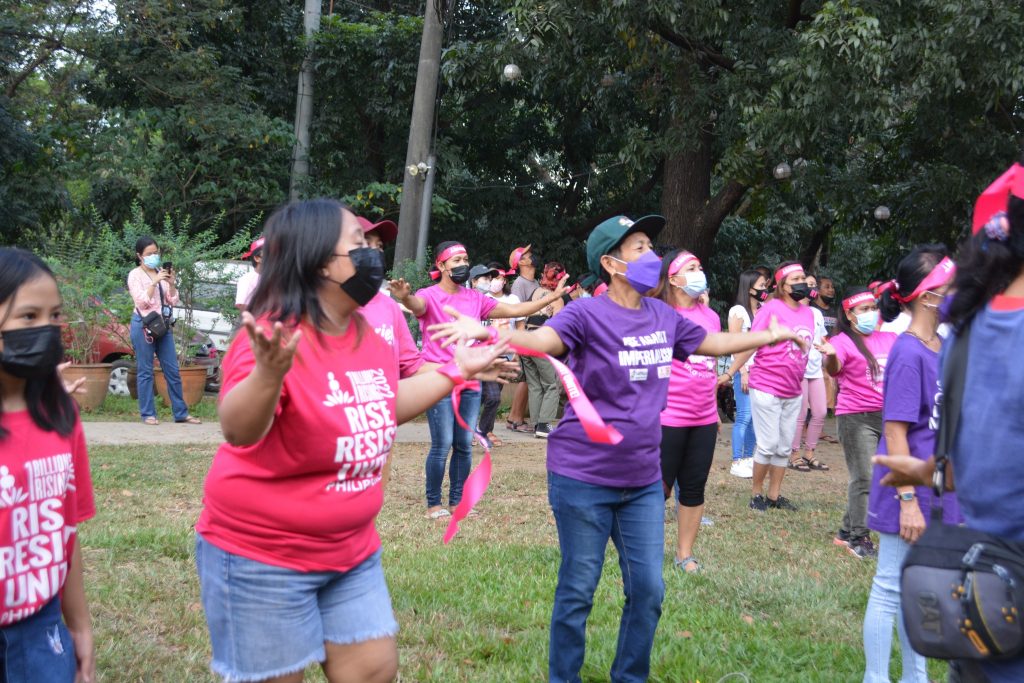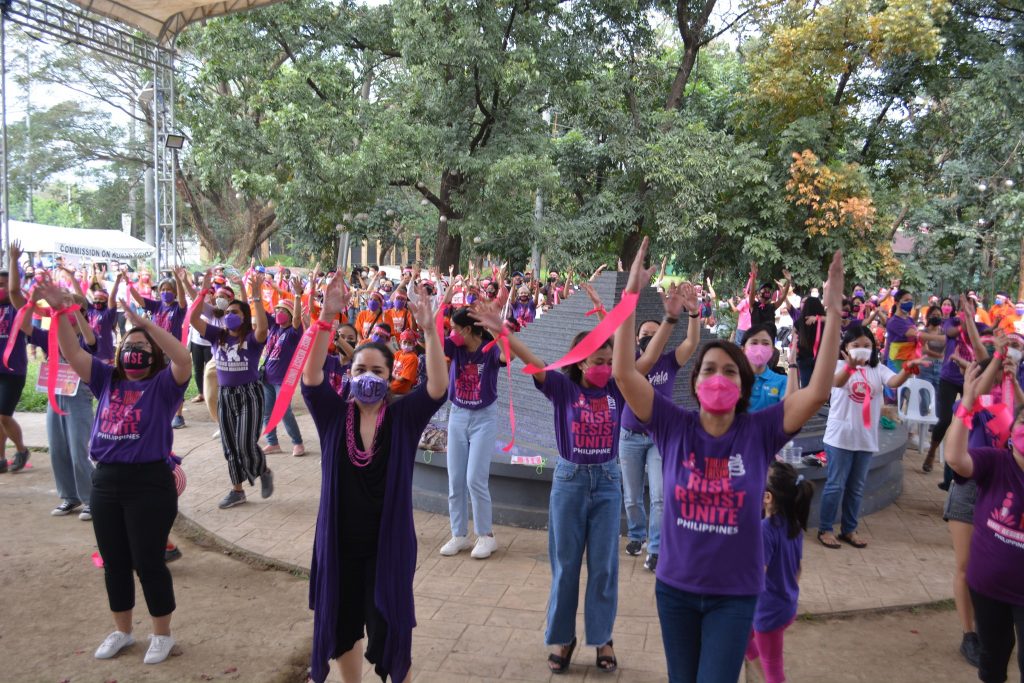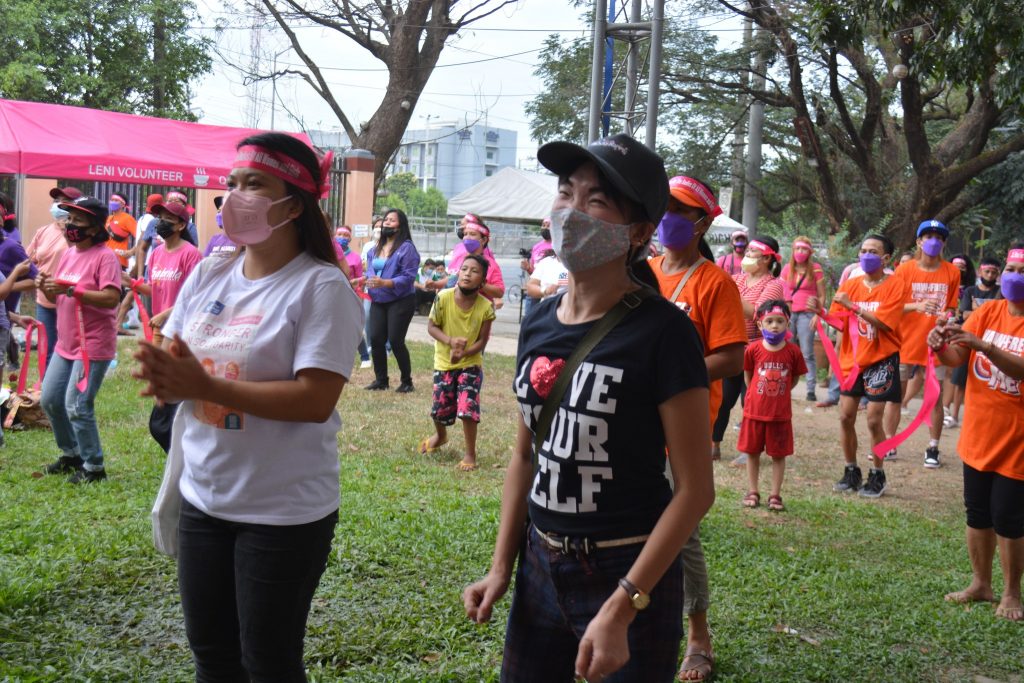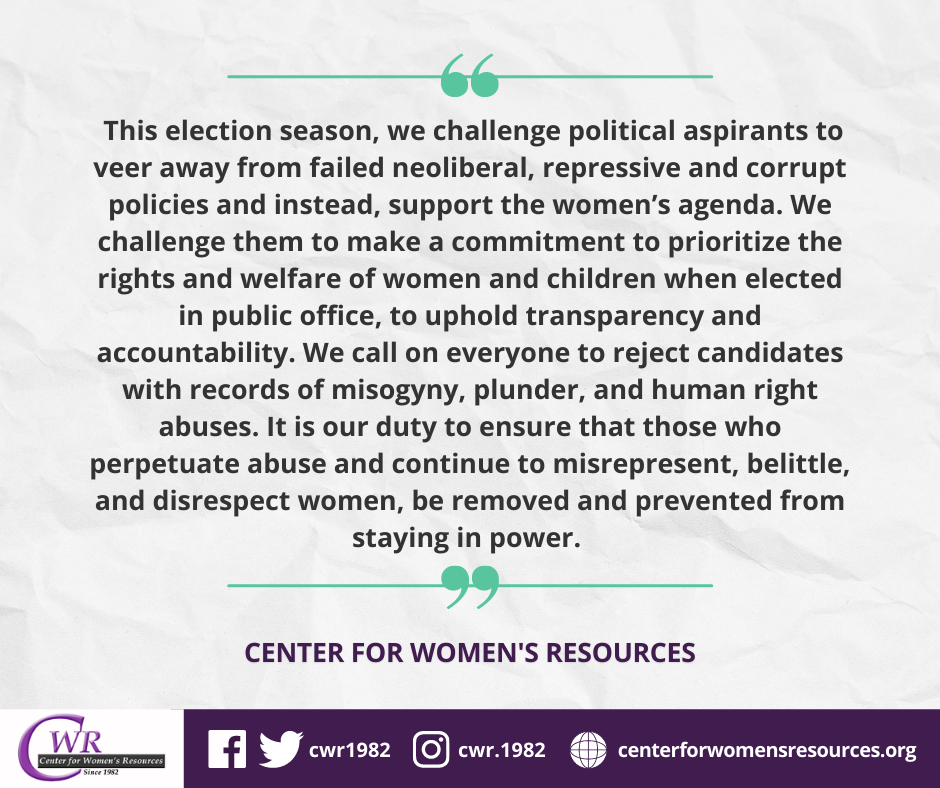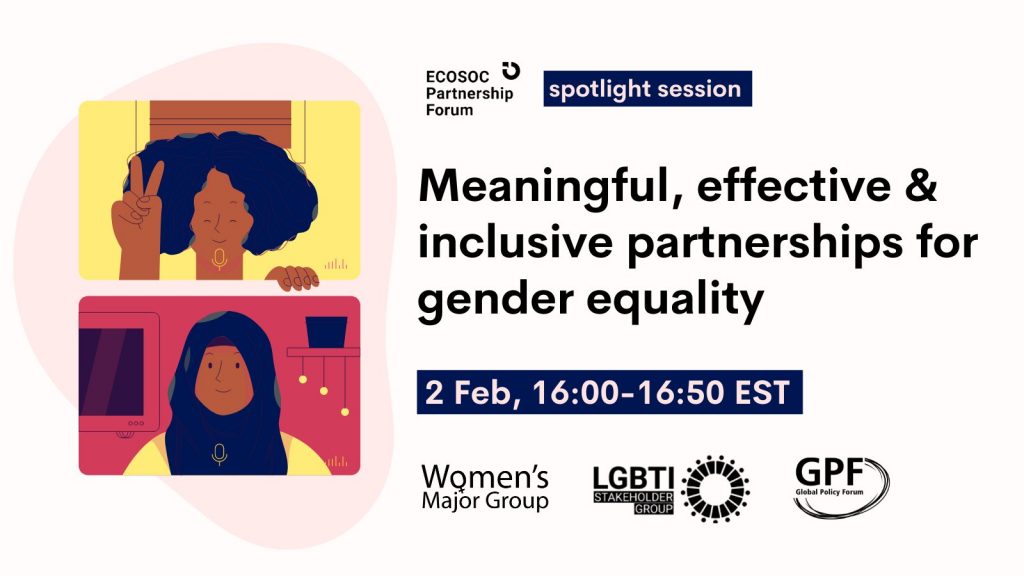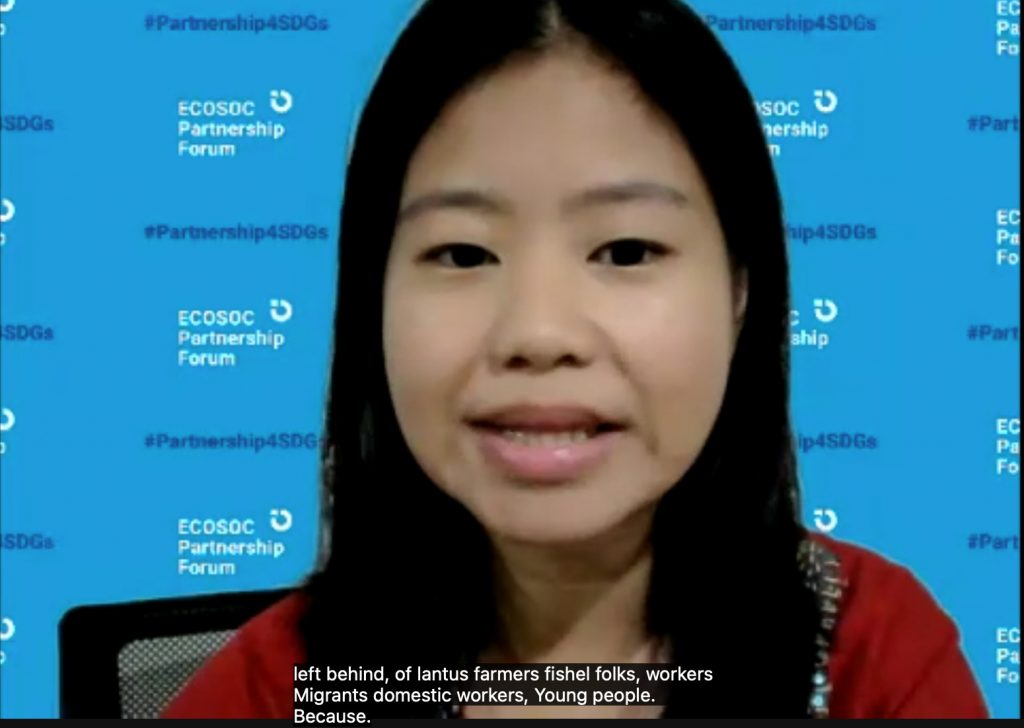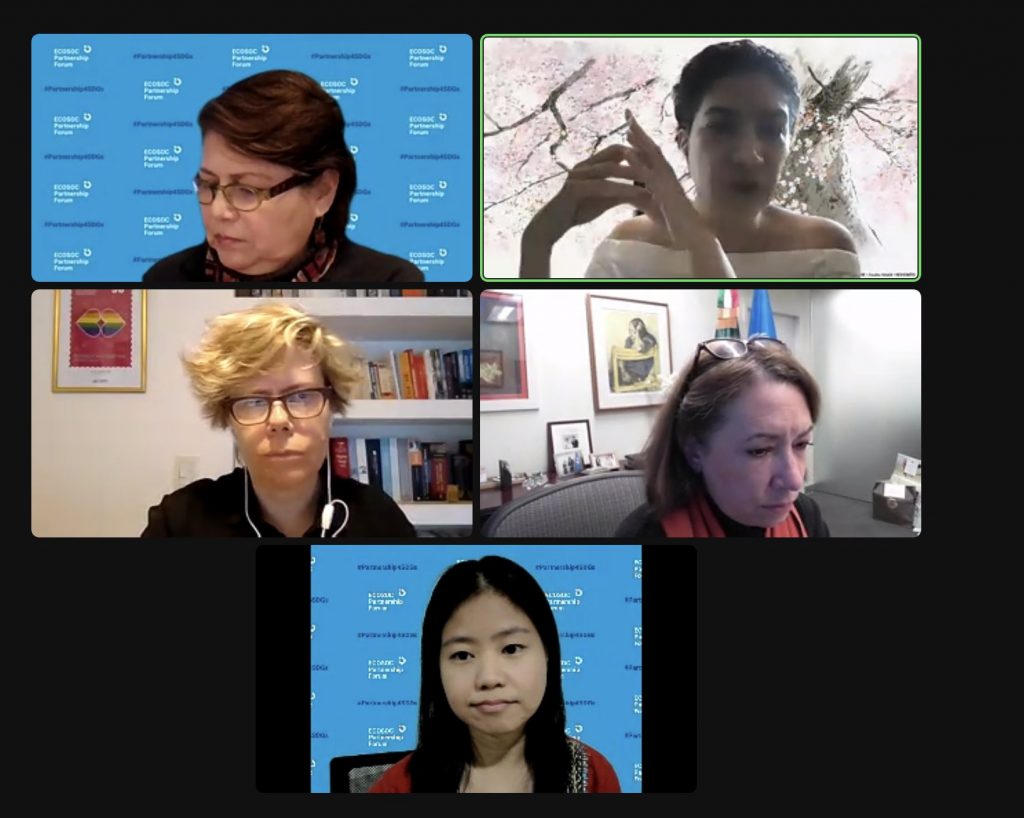Survivors and their children gathered in Marikina to commemorate the 10th anniversary of Typhoon Ondoy.
Hundreds of women gather to craft the 2022 Women’s Electoral Agenda
Women community leaders, activists, and advocates convened for the hybrid 2022 National Summit this March 6, Sunday, to craft the Women’s Agenda for the 2022 National Elections.
More than 100 women from Luzon joined the face-to-face gathering at the Quezon City University Auditorium in Novaliches, Quezon City, while participants from Visayas and Mindanao joined the virtual conference.
The national summit started with a discussion of the situation of women in the last six years. Participants then joined the workshops to raise their local situations and their demands to build the agenda.
In the afternoon, the Women’s Agenda were collated and presented to local and national politicians to sign their commitment in forwarding women’s issues as part of their electoral agenda.
The Women’s Agenda
The Agenda disclosed the concerns that women want to put forward to the candidates. It included the issues on employment, national industrialization, agricultural support, human rights, assurance of sovereignty, free from violence, and non-discrimination of marginalized sectors including LGBTQ and indigenous peoples, among others.
“Women have suffered the brunt of a worsening socioeconomic crisis in the last six years,” said Cham Perez, Executive Director of the Center for Women’s Resources, a research institution for women.
Perez said that women’s unemployment rate remained high while those employed suffered low wages and job insecurity. She noted that neoliberal policies of liberalization and privatization made it even more difficult for women to realize decent work, stable livelihood, food security, and access to social services such as health and education.
“The minimum wage has not increased since 2018, while prices of basic commodities continue to rise since the implementation of the TRAIN law in the beginning of 2018,” Perez explained.
Perez also noted that women’s economic insecurity made them more vulnerable to different forms of abuse and violence.
Women’s participation in the coming elections
Babae, Bantayan ang Eleksyon (BaBaE Network), an election watchdog network of individuals and organizations, reminded women to scrutinize platforms and programs of candidates. BaBaE Network also raised alarm over reports of election irregularities in the months leading to election day.
“We must remain vigilant during the campaign season, as we move closer to May 9. We enjoin everyone to watch our votes and to immediately report any forms of election fraud,” said Professor Pau Hernando, BaBae Network spokesperson.
Hernando suggested that women should support candidates who forwarded the women’s agenda, and should reject those who have records of misogyny, corruption, fraud, and violence.
The need to mobilize beyond the electoral season
During the summit, participants also affirmed the need to organize and mobilize beyond the 2022 elections.
“While we see the 2022 National Elections to forward women’s issues and concerns, we believe that our political participation should not be limited in casting our votes on May 9,” remarked Gert Libang, National Chairperson of GABRIELA National Alliance of Women.
She explained that the current political system dominated by elites resulted to limited opportunities for societal change.
“The change that we want must continue to organize ourselves and mobilize to raise our grievances and clamor for genuine social change”, she concluded.
The National Women Summit was organized by GABRIELA – Alliance of Filipino Women, Center for Women’s Resources, Babae Bantayan ang Eleksyon, GABRIELA-Youth, Kilusan ng Manggagawang Kababaihan, Amihan – National Federation of Peasant Women, BAI Indigenous Women, Girls for Peace, and Bahaghari.





